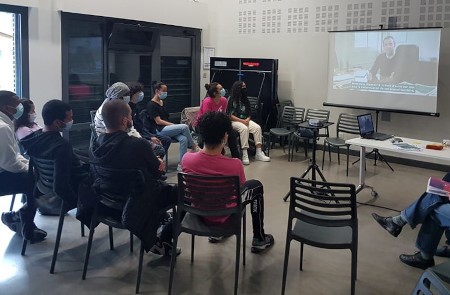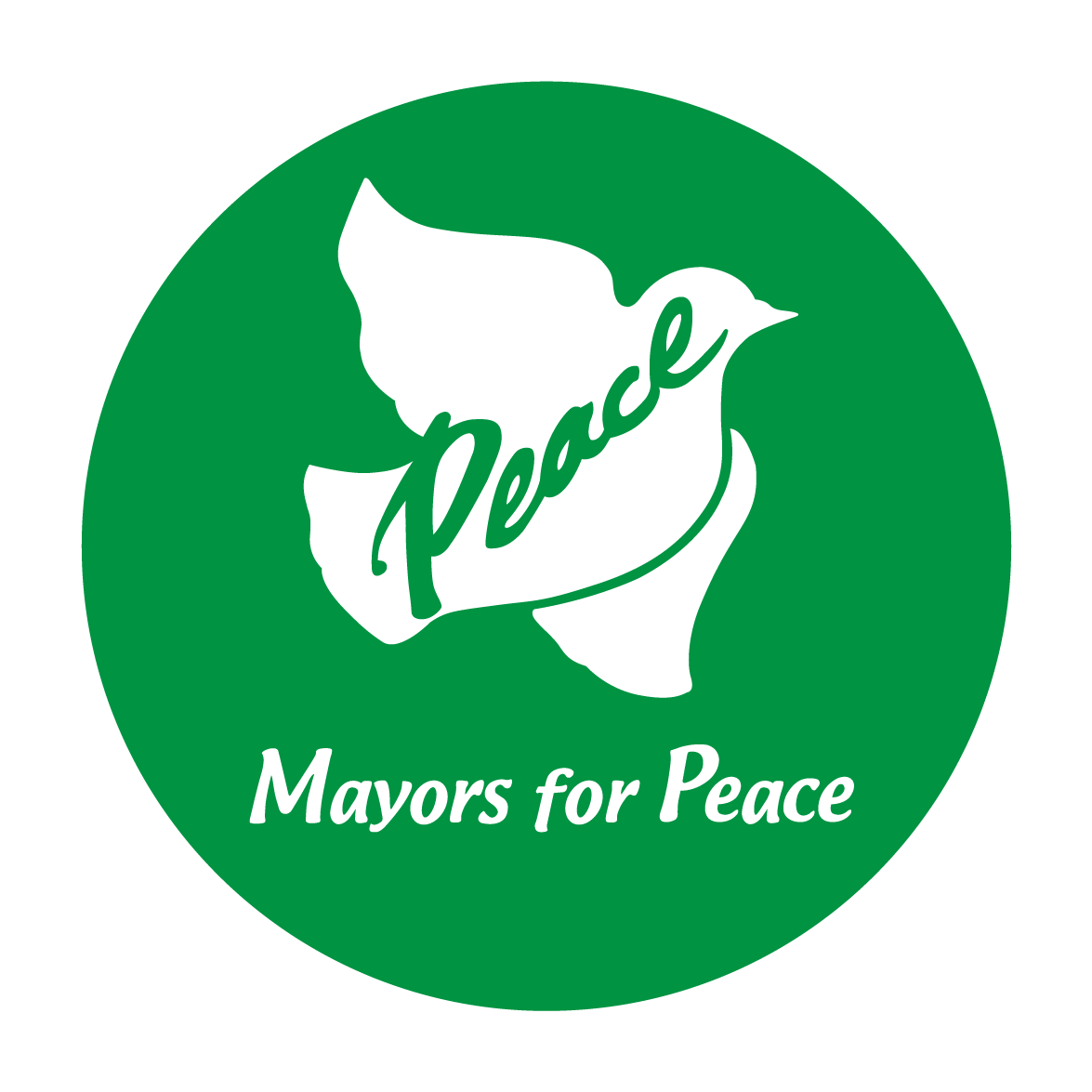Report by Ms. Loréna Schlicht, AFCDRP-Mayors for Peace France
The City of Gennevilliers organizes 2,047 kilometers cycling trip project between its two twin cities, Bergkamen in Germany and La Baneza in Spain from July 6 to August 16. 18 young Gennevilliers residents aged 16 to 25 participate in this challenging project with three groups in relays.
The sponsoring company of each bike donates the same amount of euro as the total number of kilometers that bike travelled, to the association called “Le chemin de Jade”, which helps children with disabilities.
The group of cyclists met on the 5 June with Eleonore Perrier, officer in the International Relation Department (Gennevilliers), Céline Lanoiselée, Deputy Head of the International Relation Department (Gennevilliers), and members of Mayors for peace French chapter secretariat (Loréna Schlicht, culture of peace officer and Michel Cibot, general delegate).
After a brief reminder about the historical perspective and purpose of twin cities from Eleonore Perrier and Céline Lanoiselée, Loréna Schlicht and Michel Cibot exchanged with the young cyclists about Mayors for peace purpose and how international cooperation is a relevant initiative for peace.
A small interview was made with three cyclists: Jemaa Zaïneb (17 years old), Walid Oubella (18 years old), Nicolas Sezibera (18 years old).

Photo: courtesy of the AFCDRP-Mayors for Peace France
Q: Can you present the bike tour project and tell us why you decided to participate in this project?
Walid : We will ride a total of 2,047km in 3 mini trips this summer (Germany-Paris/Paris-Bordeaux/Bordeaux-Spain). We will start in Bergkamen and we will finish in La Bañeza. The purpose of the trip is to support an association, “Les chemins de Jade”, a small association for handicapped children. In the time of the pandemic, this experience will allow us to express ourselves.
Nicolas : This project sets a real challenge, and it is not an easy one. Will we be able to handle so many kilometers? Is it possible for us to quite if we have to? Will someone give up half way cycling across Europe? Each of us have a reason to participate in the project. It’s nice to give our help to families who have disabled children. We can have fun for a great cause.
Jemaa: We feel this project is so meaningful. We put our hearts into it. I am so grateful for what is being done for us in life. This project is a chance for us to give something back to our society.
Q: What is peace? How would you define it?
Walid: Peace is the feel that the world belongs to us. It is a state without having any pressure, or a life without any threats, like the threat of nuclear weapons.
Nicolas: In a peaceful world, we can respect the others, the humanity, the earth, and oneselves.
Jemaa: It’s a state of mind being aware of the needs of others—through communication, sharing ideas and exchanging opinions.
Q: Is your project an action for peace in your opinion? And if so, why?
Nicolas: Yes, because peace is about “reaching out.” In this project, we go to places and get people, including ourselves, connected in several ways: connecting different countries, cultures, and people. The project aims to take a step in helping the families of disabled children—reaching out to those need support.
Jemaa: Yes. This project is about going to unfamiliar places, and it requires to accept the different cultures and norms. Then, we come to become aware of these needs without sacrificing our own needs. It is a form of peace. This project has the real objective of social peace. The disabled are often perceived with an economic challenges in our societies. We show that it is rather a question of mutual aid through this project. We are young people and we help other young people. In this way, we participate in social peace.
Walid: This trip is a symbol of peace, and it is so powerful! Peace assures the freedom to go to another country and to meet new people. If there is no peace in the world, we cannot achieve the liberty. If there are tensions between two countries or war, a challenge like this would not be possible.
Q: What are your future goals?
Walid: As we grow up to adults, we will try to adapt to the world as soon as possible. We’re going to give ourselves the best chance to survive in this difficult world!
Nicolas: For me, participating in the project is already important. I would like to contribute in creating peace and equality. I believe if everyone does their best, we can do great things.
Jemaa: We expect a lot from young people. For my part, I would like to help the world. Addressing the issues Palestinian and African people are facing today are particularly important to me. My goal would be to live with imagination and creativity, as I realized it is important to imagine solutions and to come up with ideas that would help people to move forward.
